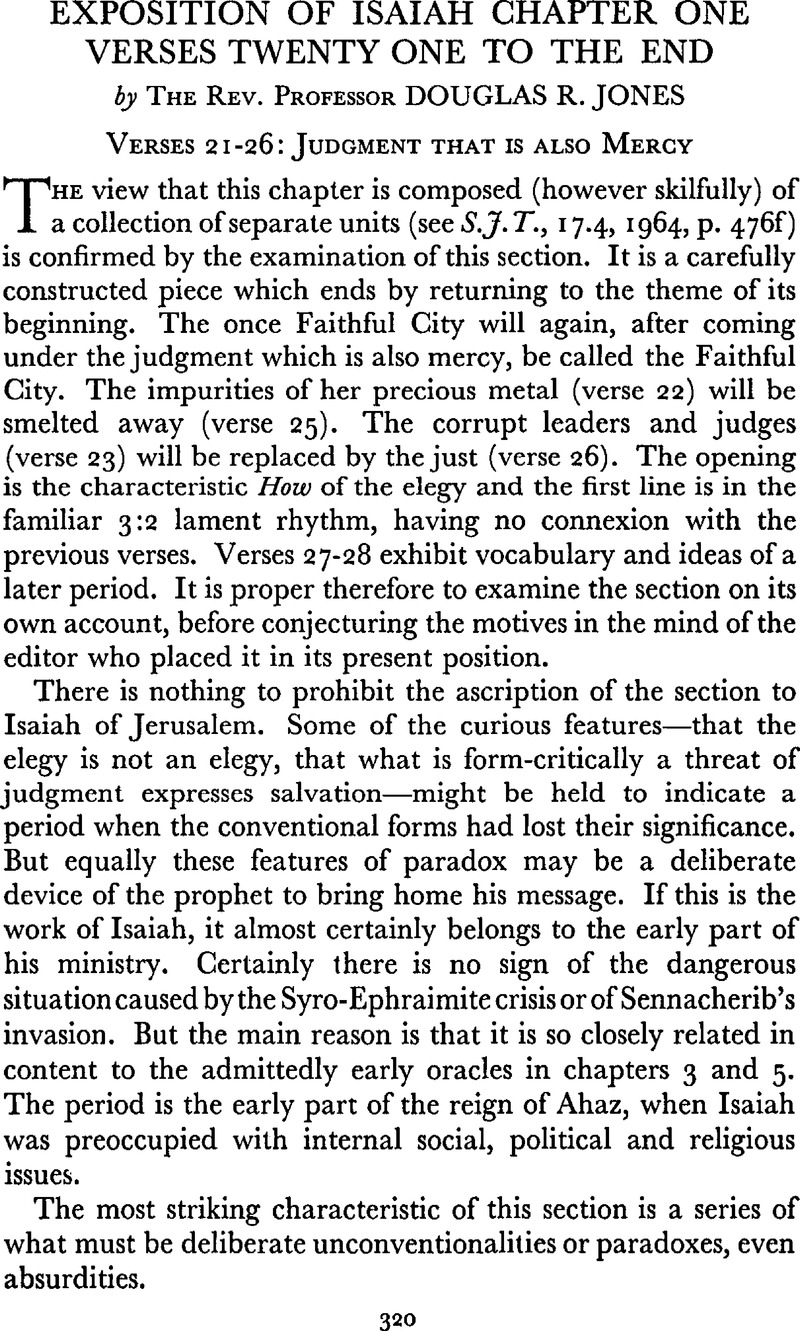No CrossRef data available.
Article contents
Exposition of Isaiah Chapter One Verses Twenty One to the End
Published online by Cambridge University Press: 02 February 2009
Abstract

Information
- Type
- Article Review
- Information
- Copyright
- Copyright © Scottish Journal of Theology Ltd 1968
References
page 322 note 1 Hos. 1–2.
page 324 note 1 ThVriezen, C., An Outline of Old Testament Theology (1958), p. 150.Google Scholar
page 324 note 2 3.15; 10.23, 24, 33; 22.5, 12, 15; 28.22.
page 324 note 3 A. Alt, ‘The God of the Fathers’ in Essays on Old Testament History and Religion.
page 325 note 1 Eichrodt, W., Theology of the Old Testament, Vol. II (1967), p. 433.Google Scholar
page 326 note 1 Ps. 46, 48, 76, 87; 47, 93, 97, 98, 99; 2, 18, 20, 21, 45, 72, 101, 110, 132, 144.
page 326 note 2 Ps. 48.10–11, 76.8–9, 98, 10, 99.4.
page 326 note 3 Ps. 97.2.
page 326 note 4 Ps. 45.7; 72; 101; Isa. 9.6–7, 11.3–5.
page 326 note 5 Johnson, A. R., Sacral Kingship in Ancient Israel, 2nd ed. 1967.Google Scholar
page 326 note 6 Porteous, N., ‘Jerusalem-Zion: the Growth of a Symbol’ in Verbannung und Heimkehr, Wilhelm Rudolph zum 70. Geburtstage (1961)Google Scholar, reprinted in Living the Mystery. Collected Essays.
page 326 note 7 cf. Ps. 50.2, 6, 18–21.
page 326 note 8 Wildberger, Hans, Jesaja, Biblischer Kommentar (1965), p. 58.Google Scholar
page 327 note 1 1 Cor. 3.13.
page 327 note 2 Ps. 85.10.
page 327 note 3 Isa. 57.5.
page 328 note 1 This quotation is from Barth, Church Dogmatics, II. 1.30, p. 365. He is describing the thought of Ritschl, but in so doing catches the popular impression of the meaning of the Old Testament.
page 328 note 2 Ibid., p. 363.
page 328 note 3 ibid., quoting Wichelhaus.
page 328 note 4 John, 3.19.

